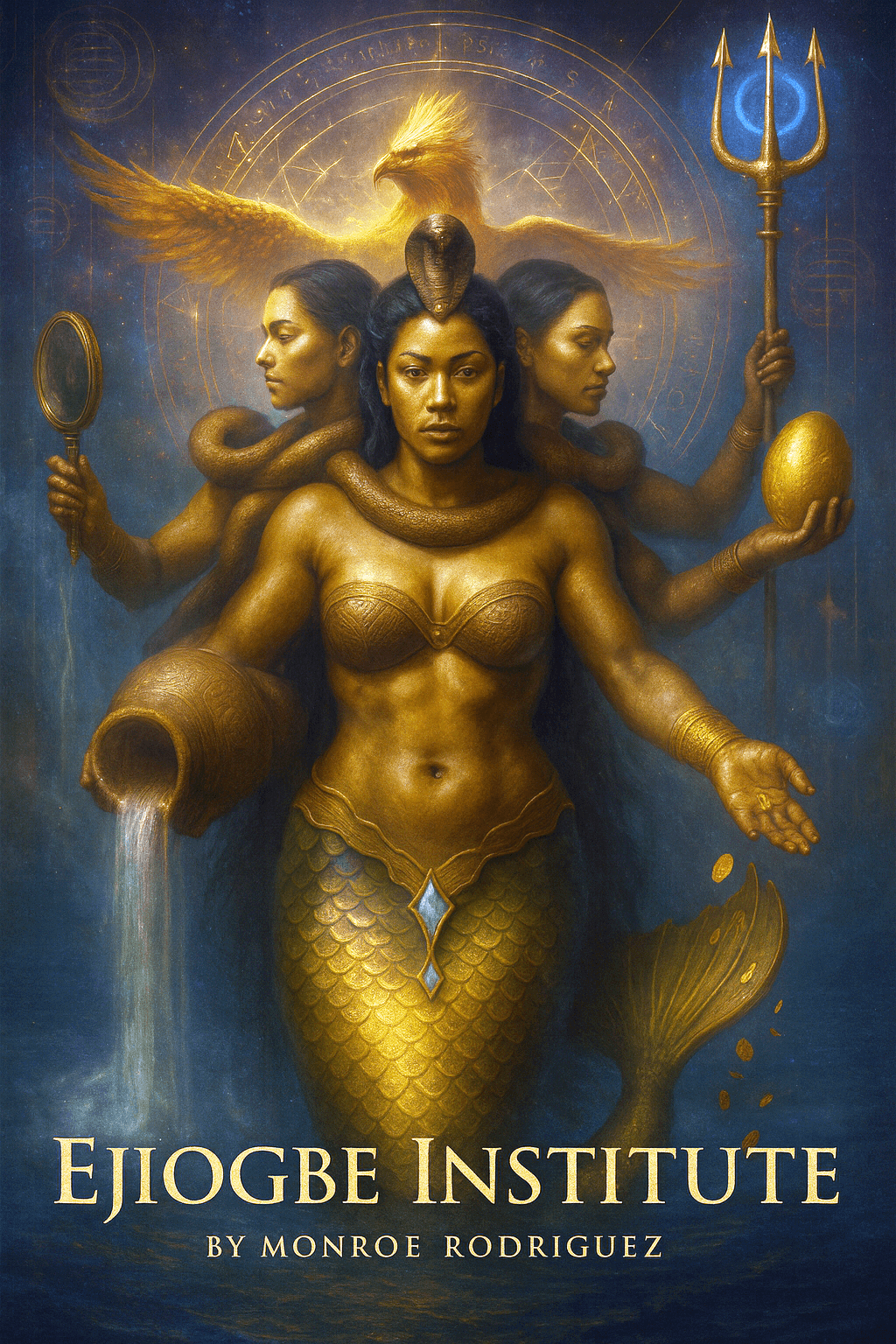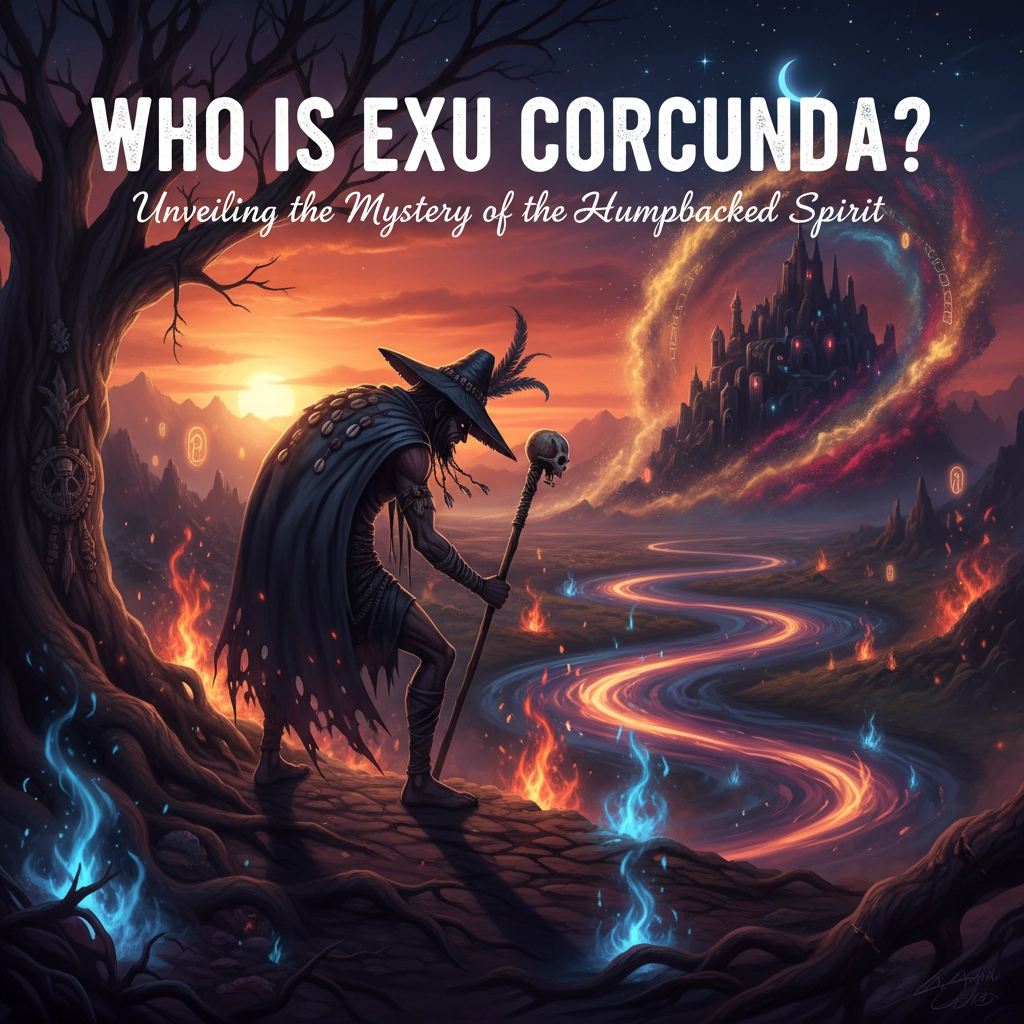What if the most powerful spiritual transformations come from those who have walked through the darkest chapters of human history? What if redemption isn't just possible: but inevitable: for those brave enough to confront their past and choose a different path?
Meet Exu Corcunda, a spiritual entity whose story challenges everything we think we know about justice, redemption, and the complex nature of spiritual evolution. His name alone: Corcunda, meaning "hunchback" in Portuguese: hints at the burdens he carries, both physical and spiritual. But this is no ordinary tale of disability or disadvantage. This is the story of one of the most compelling figures in Afro-Brazilian spiritual traditions, whose journey from oppressor to spiritual guide offers profound lessons for anyone seeking transformation.
The Spiritual Hierarchy: Where Power Meets Responsibility
In the intricate world of Quimbanda and Umbanda spiritual practices, hierarchy isn't about dominance: it's about responsibility and spiritual service. Exu Corcunda stands as the chief of the "Povo da Lomba da Kalunga," translating to the People of Kalunga Hill. For those unfamiliar with this terminology, Kalunga represents the sacred spaces of cemeteries in Quimbanda tradition, places where the veil between worlds grows thin and spiritual work reaches its most potent form.
But here's where it gets fascinating: Exu Corcunda also serves as a representative in the Line of Xangô, operating as what practitioners call a "negative force": not evil, but rather a balancing energy that challenges, tests, and ultimately transforms those who seek spiritual growth. Think of him as the spiritual equivalent of that brutally honest friend who tells you exactly what you need to hear, not what you want to hear.
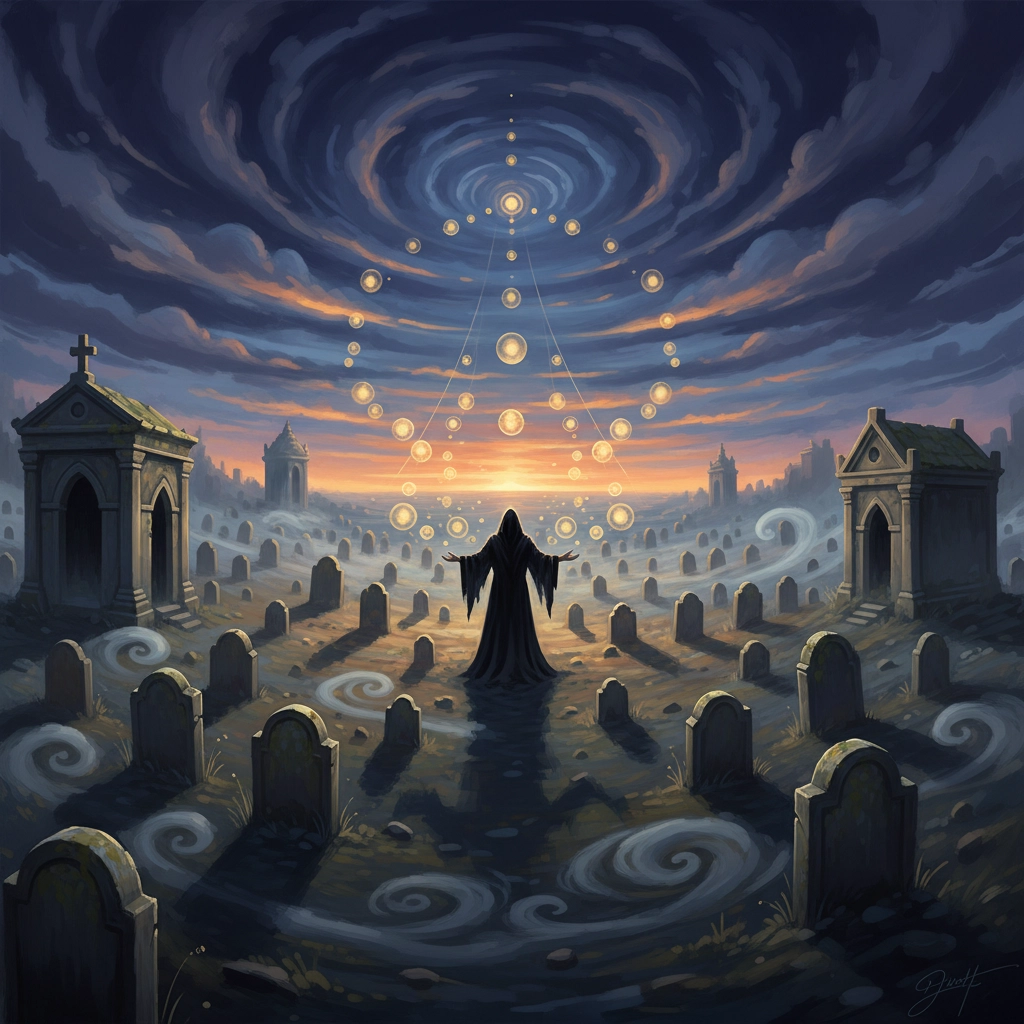
This positioning isn't accidental. In Afro-Brazilian spiritual traditions, entities like Exu Corcunda serve as bridges between the material and spiritual worlds, helping practitioners navigate the complex terrain of personal transformation. His role demands both wisdom earned through suffering and the courage to guide others through their own dark nights of the soul.
From Spanish Courts to Spiritual Realms: The Origin Story That Changes Everything
Ready for a plot twist that would make even the most seasoned storyteller jealous? Exu Corcunda's origin story unfolds in 16th-century Spain, during one of history's most brutal periods of religious persecution. Born to a poor Romani family: a group already marginalized and persecuted: his life took an unexpected turn when he was abandoned as an infant and raised by a wealthy, devout Catholic family.
Picture this: a Romani child, unknowing of his true heritage, growing up in luxury and privilege, receiving the finest education money could buy. His adoptive family molded him into the perfect Catholic gentleman, and he eventually rose to become a judge in the Spanish Inquisition. The irony cuts deep: the very child of a persecuted people became one of their persecutors.
But here's where the story takes on mythic proportions. Exu Corcunda didn't just participate in the Inquisition; he excelled at it. He condemned countless souls: witches, heretics, and yes, Romani people: with the zealous fervor of someone who believed he was serving divine justice. The historical records speak of his reputation for harsh, unjust sentences, particularly against those who dared to practice anything outside Catholic orthodoxy.
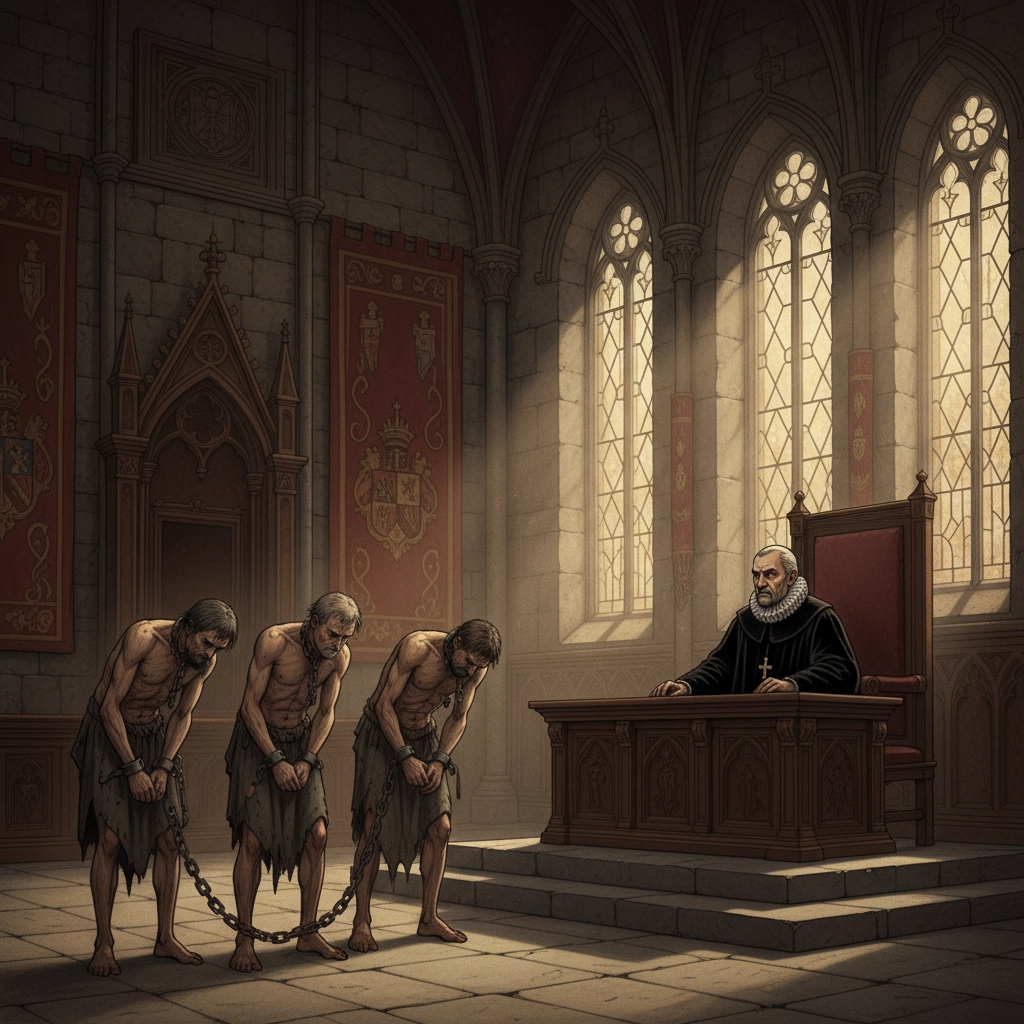
The Revelation That Shattered Everything
Every transformation story has its moment of truth, and Exu Corcunda's came at his adoptive father's deathbed. Imagine the scene: a dying man, consumed by guilt, finally revealing the secret he'd carried for decades. "You are not my son," he whispered. "You were left at our door as an infant by a poor Romani family."
The revelation didn't just change Exu Corcunda's understanding of his identity: it shattered his entire worldview. Every person he had condemned, every family he had destroyed, every life he had ended in the name of religious purity: they were his people. The very blood that flowed in his veins connected him to those he had persecuted with such merciless efficiency.
This moment of awakening triggered something profound. The rage wasn't just personal; it was existential. He had become the instrument of his own people's oppression, and the weight of that realization transformed him completely. He rejected not just his adoptive father, but the entire Catholic system that had shaped him into a weapon against his own heritage.
The Price of Transformation: When Truth Demands Everything
Here's what makes Exu Corcunda's story so compelling: transformation isn't free, and it certainly isn't safe. Once he discovered his true identity and rejected the Catholic doctrine that had defined his life, there was no going back. His rebellion against the Church wasn't subtle or diplomatic: it was complete and unapologetic.
The Inquisition, that same institution he had served so faithfully, turned on him with the same ruthless efficiency he had once wielded against others. They condemned him through one of their own unjust trials, the ultimate irony in a story already rich with painful contradictions. The judge became the judged, the persecutor became the persecuted, and the man who had sent so many to their deaths faced his own execution.
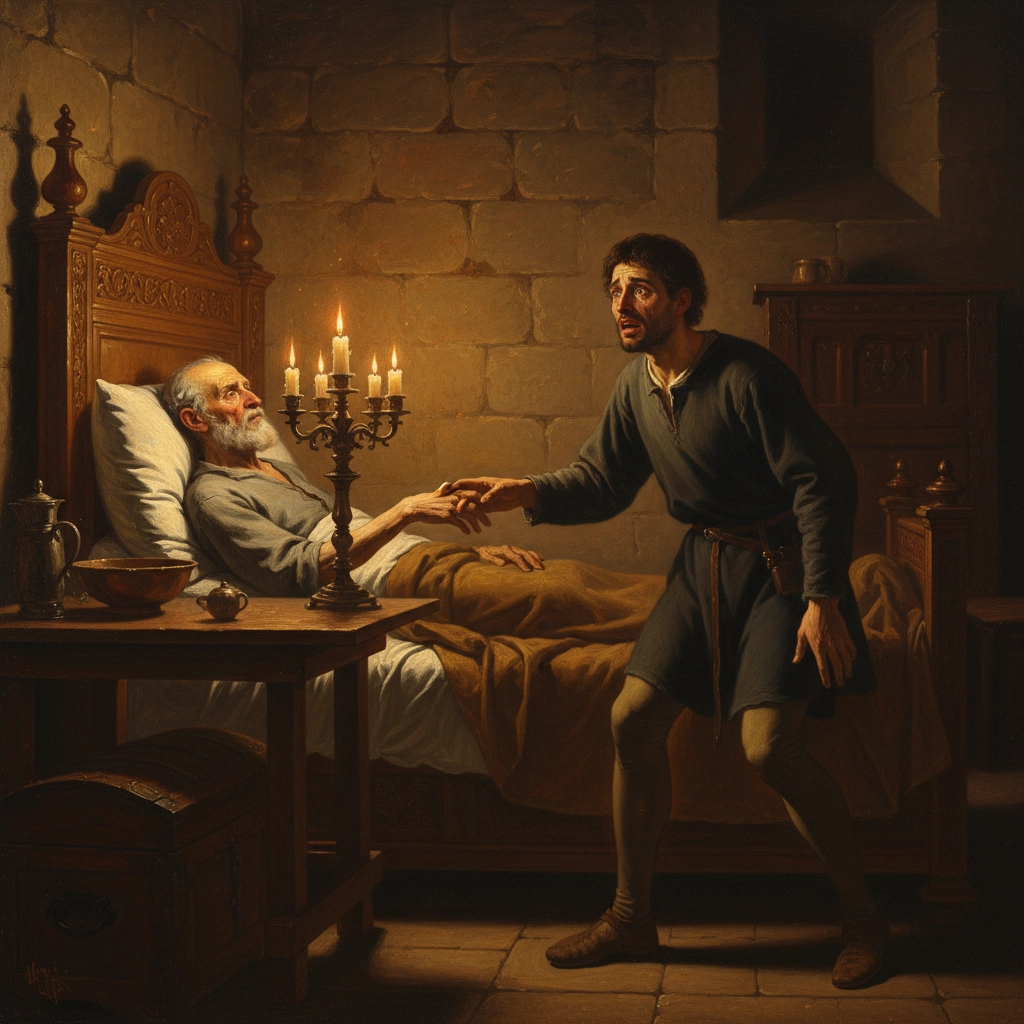
But death, in spiritual terms, often marks the beginning rather than the end. Exu Corcunda's execution didn't silence his story: it transformed it into something even more powerful. His death became the catalyst for his spiritual evolution, the final step in a journey from ignorance to awakening, from oppressor to guide.
The Spiritual Guide Born from Ashes
Today, Exu Corcunda operates in the spiritual realm as a powerful guide and teacher, particularly within Umbanda and Quimbanda traditions. His work isn't about seeking revenge or harboring bitterness: it's about helping others navigate their own journeys of discovery and transformation. Who better to guide someone through the process of confronting uncomfortable truths than someone who has lived through the ultimate confrontation with his own shadow?
Practitioners who work with Exu Corcunda often describe him as a demanding but fair spiritual teacher. He doesn't coddle or comfort; instead, he challenges people to face their own contradictions, their own unconscious prejudices, and their own capacity for both harm and healing. His lessons often center around themes of justice: not the kind imposed from external authority, but the kind that emerges from genuine understanding and compassion.
His association with cemetery work in the Kalunga tradition makes perfect sense when you consider his story. Cemeteries represent transformation, the place where one form of existence ends and another begins. Exu Corcunda embodies this principle of death and rebirth, showing that even the most seemingly irredeemable actions can become the foundation for profound spiritual service.
What Exu Corcunda Teaches Us About Redemption
The story of Exu Corcunda offers something rarely found in spiritual narratives: a completely honest look at how privilege, ignorance, and systemic oppression can corrupt even well-intentioned individuals. He didn't start as a villain: he started as someone who genuinely believed he was serving justice and divine will. His story reminds us that the most dangerous forms of oppression often come wrapped in righteousness and moral certainty.
But here's the revolutionary part: his story doesn't end with condemnation. Instead, it demonstrates that awakening is always possible, even for those who have caused tremendous harm. The key lies not in denying or minimizing past actions, but in fully confronting them and allowing that confrontation to fuel genuine transformation.
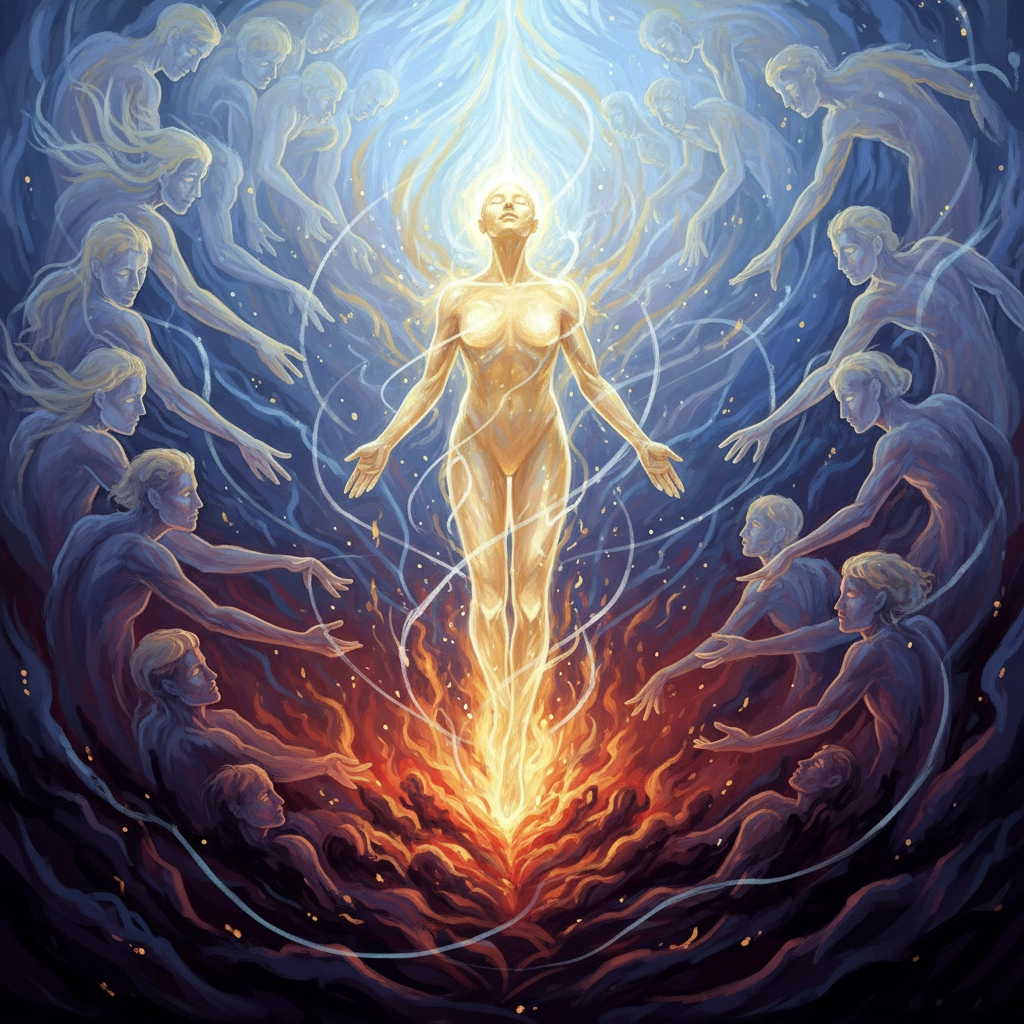
Exu Corcunda's evolution from Inquisitor to spiritual guide challenges our linear thinking about good and evil, perpetrator and victim, justice and mercy. He embodies the possibility that our greatest wounds can become our greatest sources of wisdom, and our most shameful actions can become the foundation for our most meaningful service.
Working with Exu Corcunda Today
For contemporary practitioners of Afro-Brazilian spirituality, Exu Corcunda represents both challenge and opportunity. His energy doesn't ask for worship in the traditional sense: it demands honesty, courage, and the willingness to confront uncomfortable truths about ourselves and our society.
Those who work with him often report profound shifts in their understanding of justice, privilege, and responsibility. He helps practitioners examine their own unconscious biases, their own participation in systems of oppression, and their own capacity for transformation. His work is particularly relevant in our current era, where questions of racial justice, religious freedom, and cultural appropriation demand honest examination and genuine change.
The cultural impact of Exu Corcunda extends beyond religious practice into literature, music, and popular culture. Books exploring his teachings, songs celebrating his transformation, and stories examining his complex legacy continue to emerge, testament to the enduring power of his narrative.
The Living Legacy of Transformation
Exu Corcunda's story isn't just historical: it's vibrantly alive, continuing to challenge and inspire new generations of spiritual seekers. His journey from Spanish Inquisitor to Afro-Brazilian spiritual guide represents one of the most dramatic transformation narratives in religious history, proving that redemption isn't just possible but inevitable for those brave enough to face truth.
In a world still grappling with the legacy of colonialism, religious persecution, and systemic oppression, Exu Corcunda offers a different model. He shows us that acknowledging harm doesn't require wallowing in guilt, and that transformation doesn't require perfection: it requires courage, honesty, and the willingness to serve something greater than our own comfort.
His story reminds us that the most powerful spiritual guides are often those who have walked through the darkest territories of human experience and emerged not unscathed, but transformed. They carry their scars not as shame, but as credentials: proof that change is possible, redemption is real, and that even the most twisted paths can lead to profound spiritual service.
The whispers of Exu Corcunda's story aren't fading into history: they're finding new life in every person brave enough to confront their own shadows and choose transformation over comfort, truth over convenience, and service over self-protection.
